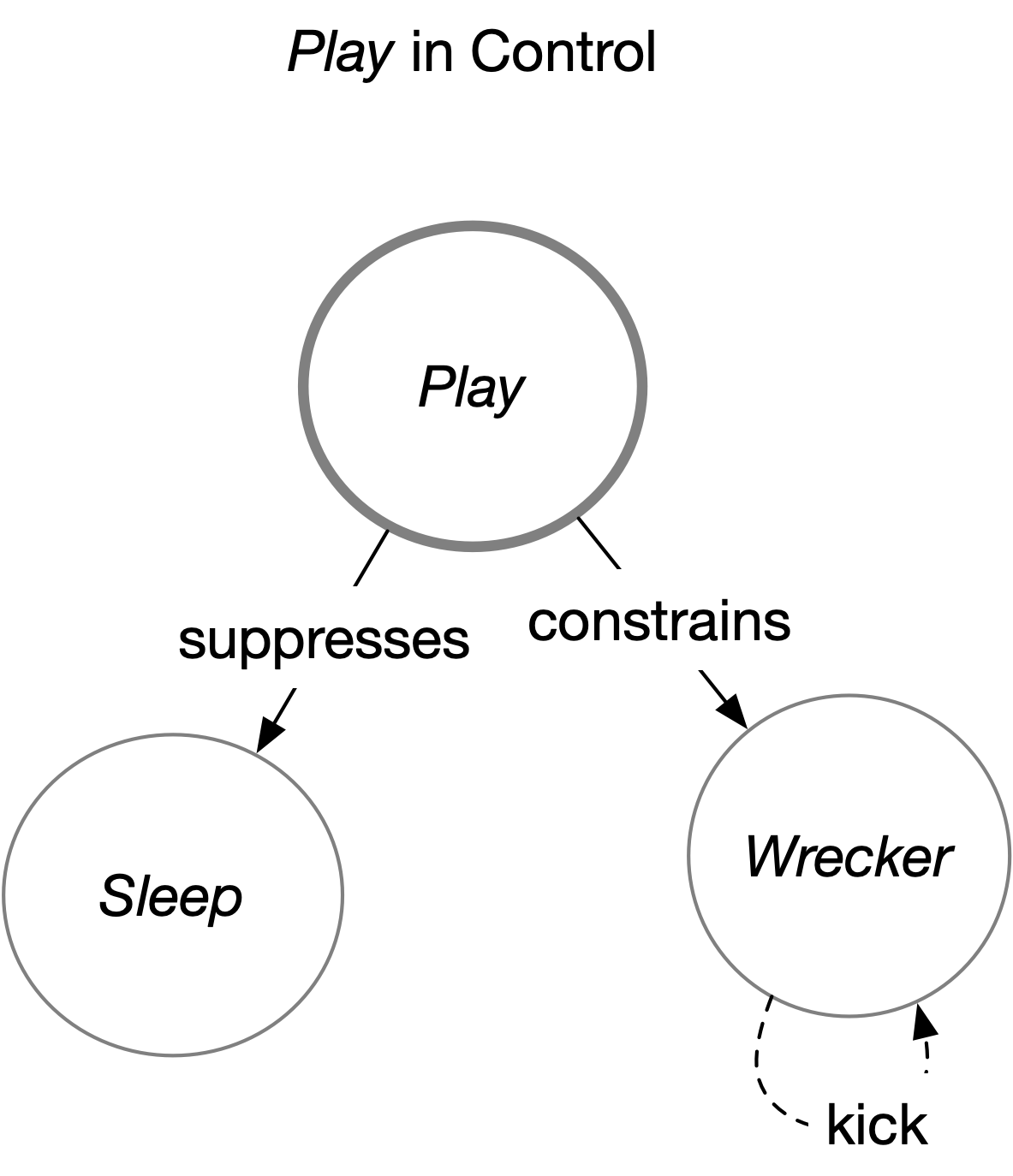
One must not mistake defining things for knowing what they are. You can know what a tiger is without defining it. You may define a tiger, yet know scarcely anything about it. “Self” is a term used to talk about a sense of identity.

One must not mistake defining things for knowing what they are. You can know what a tiger is without defining it. You may define a tiger, yet know scarcely anything about it. “Self” is a term used to talk about a sense of identity.

Pain can simplify point of view. When you’re in pain, it’s hard to think of anything else. Pleasure too can simplify point of view. You may feel that nothing is more important than finding a way to make that pleasure last. We think of pain and pleasure as opposites - pleasure makes us draw its object near, whereas pain impels us to reject its object. They are also similar – they both distract, making rival goals seem small.

Let’s say that the urges of the Play process compete with those of other processes, like Sleep : If Sleep wrests control, then perhaps a Wrecker -process urge, previously constrained and now freed from Play ’s constraint, need only persist for one more kick to gain the satisfaction of a final crash: This destructiveness may seem senseless, but it may serve to communicate frustration at the loss of
In a hierarchy, each agent only acts on behalf of one other agent: from rdflib import Graph from rdflib.namespace import RDF, PROV def hierarchy(graph): return all( len(set(graph.objects(agent, PROV.actedOnBehalfOf))) <= 1 for agent in graph.subjects(RDF.type, PROV.Agent) ) hierarchy(Graph().parse(data=""" @prefix prov: . @prefix : . :doc a prov:Agent; . :sleepy a prov:Agent;
Designing any society, be it human or computational, involves decisions like these: Which agents choose which others to do what jobs? Who will decide which jobs are done at all? Who decides what efforts to expend? How will conflicts be settled? Furthermore, roles even in a hierarchy are always relative. To Builder , Add is a subordinate, but to Find , Add is a boss.
Whenever several agents have to compete for the same resources, they are likely to get into conflicts. Those agents’ superiors, too, may be under competitive pressure and likely to grow weak themselves whenever their subordinates are slow in achieving their goals, no matter whether because of conflicts between them or because of individual incompetence.

Many children not only like to build, they also like to knock things down – to hear the complicated noises and watch so many things move at once. Let’s imagine a sibling agent to Builder called Wrecker , whose specialty is knocking things down: Suppose Wrecker gets aroused, but there’s nothing in sight to smash. Then Wrecker will have to get some help – by putting Builder to work, for example.
Are people machines? “Everyone knows that machines can behave only in lifeless, mechanical ways.” This objection seems reasonable. A person ought to feel offended at being likened to any trivial machine. But it seems to me that the word “machine” is getting to be out of date. We ought to recognize that we’re still in an early era of machines, with virtually no idea of what they may become.
GUIs and APIs are both human interfaces. They both frame perspectives on data/operation service offerings so that human beings can navigate and consume them. The human being in the case of APIs is the application programmer, a subset of users. GUIs are applications, so it is natural to expect an API’s capabilities to be a superset of a corresponding GUI’s — application programmers program the GUI using the API.
In general, we’re least aware of what our minds do best. It’s mainly when systems start to fail that we engage the special agencies involved with what we call “consciousness.” Accordingly, we’re more aware of simple processes that don’t work well than of complex ones that work flawlessly. This phenomenon helps to explain the poor performance of many so-called expert systems in the 1980s.